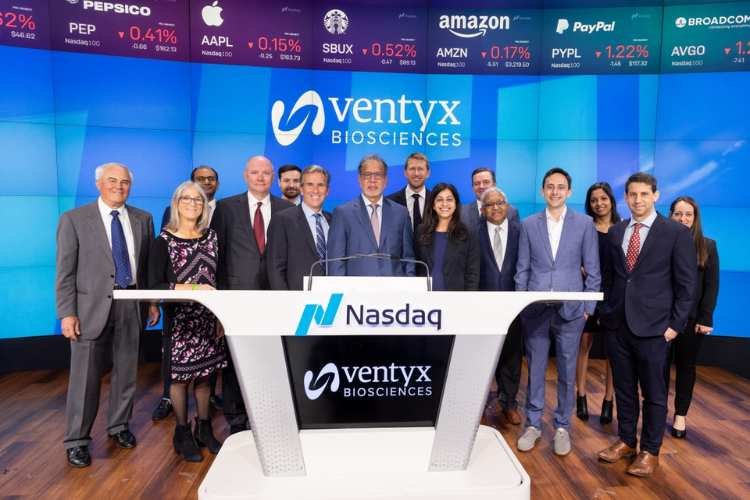Investors have shown skepticism toward Ventyx Biosciences’ attempt to challenge Bristol Myers Squibb and Pfizer in the ulcerative colitis market. While the phase 2 trial successfully met its primary endpoint, questions linger about whether the drug candidate offers a competitive advantage over rival S1P1 modulators like etrasimod and Zeposia, causing Ventyx’s stock to decline.
In January, Ventyx outlined its target profile for VTX002, aiming for a placebo-adjusted clinical remission rate of 15% to 25% and a significant reduction in absolute lymphocyte count (ALC) to differentiate its candidate from the competition. The company set its sights on achieving a roughly 70% decline in ALC, with the current standard being a 50% reduction.
The high dose of VTX002 came close to meeting the target range, yielding a 17% placebo-adjusted clinical remission rate at Week 13 and achieving a 67% to 68% reduction in ALC from baseline starting at Week 1. Notably, the ALC reductions associated with VTX002 outperformed those of the rival S1P1 drugs. However, the remission rates were more comparable, with Pfizer’s etrasimod achieving a 20% reduction in one phase 3 trial, although subsequent studies produced figures of 10%, and Bristol Myers Squibb’s Zeposia demonstrated a 12% remission rate.
Also Read: NICE Approves Lilly’s Omvoh For Ulcerative Colitis After FDA Rejection, Citing Cost-Effectiveness And Clinical Benefits
Ventyx highlighted the placebo-adjusted rate of complete endoscopic reduction, 22%, as evidence of differentiation, underscoring that other ulcerative colitis drugs achieved declines ranging from 3% to 16%, while rival S1P1 drugs achieved reductions of 3% to 10%. The safety profile of VTX002 appeared favorable, with 16% of patients on the higher dose experiencing study drug-related adverse events, and 4% discontinuing due to side effects. No patients reported serious adverse events linked to the study drug.
While Ventyx characterized the efficacy as “highly differentiated” and the safety profile as “excellent,” investors seemed less enthusiastic about the data and the prospect of funding the phase 3 development of a late-entry candidate in the market. This sentiment led to a 19% drop in Ventyx’s shares, which fell to $24.40 in premarket trading.
The company currently lags behind frontrunners in the S1P1 space, with Bristol Myers Squibb’s Zeposia approved by the FDA for ulcerative colitis in May 2021, and Pfizer’s etrasimod nearing authorization. S1P1 drugs also face competition from molecules targeting various other pathways, such as JAK and TL1A.





























